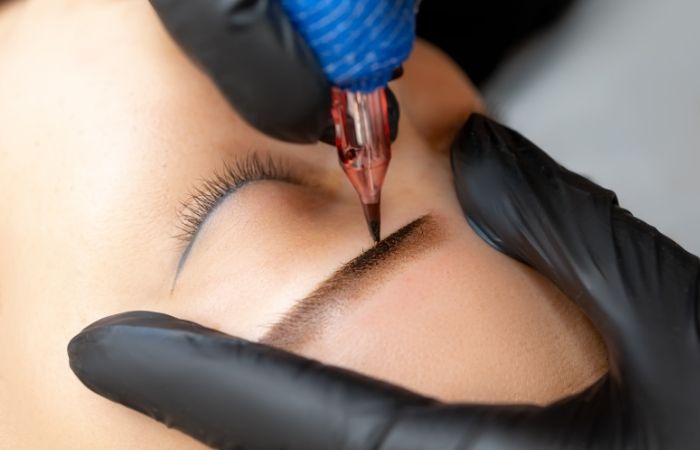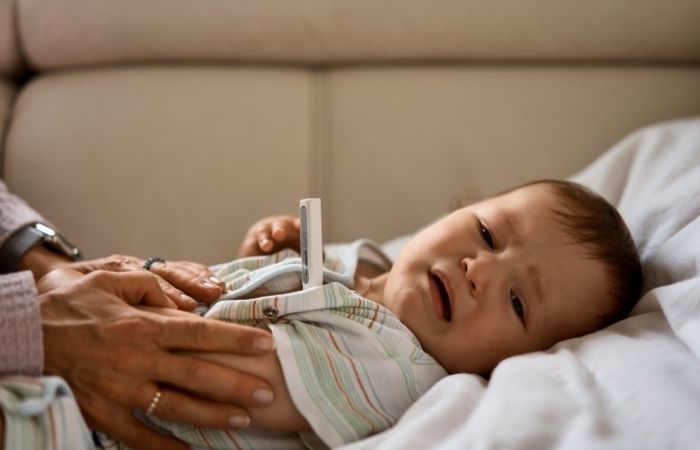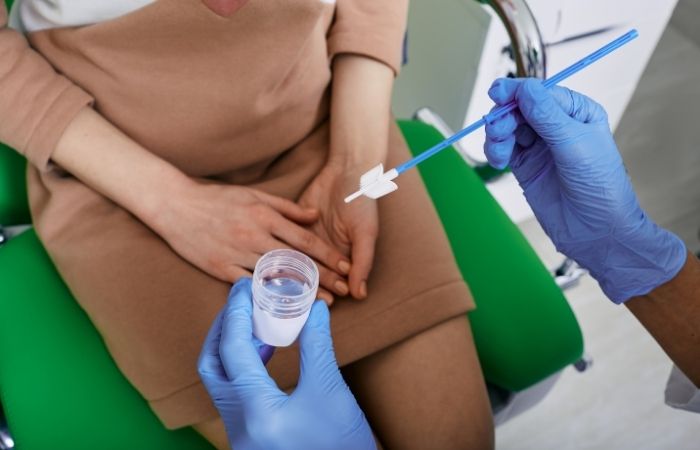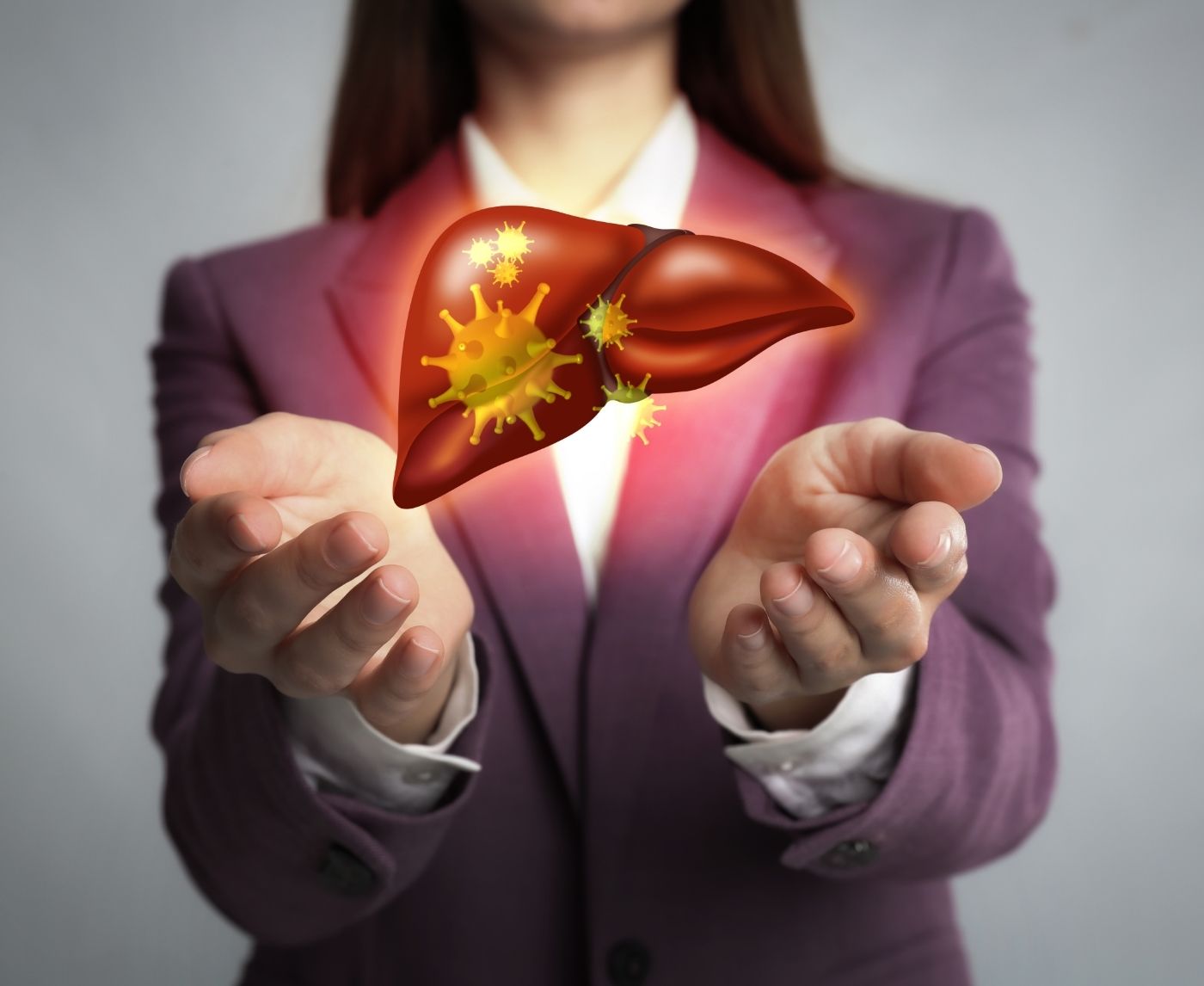Quick Answer: Yes, you can get Hepatitis B without sex. It spreads through blood, saliva, cuts, tattoos, childbirth, and shared hygiene tools like razors or toothbrushes.
This Isn’t Just an STD, It’s a Bloodborne Sneak
Hepatitis B is often lumped into the STD category because sexual contact is one common way it spreads, but that’s just one lane in a much wider highway. At its core, Hep B is a bloodborne virus, and it only takes a trace amount to infect someone.
We’re talking micro-exposures: a nicked gumline on a borrowed toothbrush, a shared razor at a sleepover, an old pair of earrings that weren’t cleaned properly. If infected blood or body fluids get into your bloodstream through a cut, crack, or mucous membrane, you’re vulnerable.
- Risk: Sharing razors, toothbrushes, nail clippers, or tweezers
- Risk: Tattooing or piercing with unsterilized equipment
- Risk: Contact with open sores or cuts during caregiving
- Risk: Accidental blood-to-blood contact (e.g., sports injuries, fights)
It’s not about being reckless, it’s about being unaware. And that’s where the danger lies.

People are also looking for: Can anxiety make you feel like you have an STD?
“I Got Hep B Before I Even Had Sex”: A Case You Should Know
Liana, 22, was diagnosed with Hepatitis B after applying for a medical internship that required testing.
“I cried in the clinic bathroom. I was still a virgin. I thought there had to be a mistake.”
She hadn’t had any sexual partners. But she did have a matching tattoo with her cousin, done at a friend’s house with reused ink caps. That was enough. The virus had been living quietly in her system for years, undetected. No symptoms. No idea.
This story isn’t rare. According to the CDC, millions of people globally have Hepatitis B and don’t even know it. Many never feel sick, never see a rash, and never get a clue until a random test reveals the truth.
It’s the silence that makes this virus so dangerous.
Cut, Bleed, Transmit: When Blood Talks Louder Than Words
If someone with Hepatitis B bleeds, even a tiny bit, and that blood gets into your system through a crack in your skin, you’re at risk. It’s not just about IV drug use or dramatic accidents. Everyday stuff counts:
- Gym mishaps: Cuts on shared equipment or mats
- Sports injuries: Open wounds during contact games
- Household caretaking: Cleaning up blood or bodily fluids from a sick relative
It doesn’t matter if the other person "looks healthy" or “didn’t seem sick.” Hepatitis B can be completely asymptomatic for months, or even years. That means they could pass it on without ever knowing they had it.
The virus can also survive outside the body for up to 7 days on surfaces like razors, countertops, or needles, according to the World Health Organization.
Don’t Kiss This Off: What About Saliva and Spit?
Let’s set the record straight: casual kissing won’t typically spread Hep B, but it’s not a zero-risk situation. The virus has been found in saliva, though at much lower concentrations than in blood or semen.
The real danger is when kissing happens with:
- Bleeding gums or mouth sores
- Recently brushed or flossed teeth (tiny blood vessels exposed)
- Oral piercings or injuries
So technically, yes, it’s possible to get Hepatitis B from kissing, especially if blood is involved. But it’s not the main transmission route.
Still worried? We get it. That’s why this article goes deeper into how the virus moves, hides, and survives in ways most people never expect.
From Mom to Baby: The First Exposure Most People Miss
Perinatal transmission, when a baby gets infected during birth, is one of the most common non-sexual ways Hepatitis B spreads globally. And it’s not talked about nearly enough.
If a birthing parent has chronic Hepatitis B, there's a 90% chance the baby will be infected at birth unless steps are taken. That’s why the CDC recommends the first dose of the Hep B vaccine be given within 24 hours of delivery.
But here’s the part that gets skipped: many people with Hep B don’t know they have it when they give birth. That leads to generational transmission, people inheriting Hep B silently, often in families from regions where the virus is more common (like Asia, Sub-Saharan Africa, and the Pacific Islands).
Ellis, 30, didn’t learn they had Hepatitis B until they tried to donate blood in college.
“My mom felt awful. She kept saying, ‘But I was careful.’ We just didn’t know.”
This isn’t about blame, it’s about awareness. And testing can break the cycle.

People are also looking for: Can I get treated without insurance?
Tools You Didn’t Know Could Infect You
Let’s talk hygiene. The stuff in your bathroom cabinet can quietly turn into a transmission tool if you’re not careful.
- Razors: Blood-contaminated blades can transmit Hep B even after a day or more
- Toothbrushes: Bleeding gums = blood on bristles. It takes just one swipe.
- Nail clippers & tweezers: Tiny cuts, shared tools, silent spread
- Ear piercing kits: Especially risky when done at home or without sterilization
Even when you can’t see blood, it may still be there. Hep B can survive on surfaces for up to a week, especially in dried blood. So if your cousin borrows your razor, or your roommate uses your toothbrush “just this once”, there’s a risk.
That risk may be small, but it’s real. And it’s preventable.
Ink, Needles, and Nail Salons: Overlooked Risk Zones
Tattoos, piercings, and beauty treatments can all open the door to Hepatitis B, if the equipment isn’t sterilized properly. This includes:
- Home tattoo kits or “party piercings” done without regulation
- Manicure and pedicure salons that reuse nail files, buffers, or clippers
- Microblading, dermarolling, and cosmetic procedures without single-use tools
The safest places use autoclaves (high-pressure sterilizers), single-use needles, and gloves. If your gut says something feels off, trust it. It’s not dramatic to ask how things are cleaned, it’s smart.
Pro tip: If you’ve gotten body art or beauty treatments in unregulated environments, consider getting tested with a home STD kit that includes Hepatitis B. You can test discreetly and get results quickly, no clinic visit required.
Caregiving, Roommates, and Casual Contact
Hepatitis B does not spread through hugging, sneezing, or sharing food utensils. That’s important to say, because the stigma is real, and wrong. But that doesn’t mean every household situation is risk-free.
Here’s where things can get tricky:
- Wound care: Helping someone clean or bandage a cut without gloves
- Period care: Handling used menstrual products without protection
- Bleeding events: Nosebleeds, falls, or accidents in the home
When you’re close with someone, living together, caregiving, parenting, the virus doesn’t need sex to move between you. It needs access to your bloodstream. That’s it.
If you live with or care for someone who has Hep B, you can protect yourself by getting vaccinated and using gloves for any blood or fluid contact.
Check Your STD Status in Minutes
Test at Home with Remedium7-in-1 STD Test Kit

 For Men & Women
For Men & Women Results in Minutes
Results in Minutes No Lab Needed
No Lab Needed Private & Discreet
Private & DiscreetOrder Now $129.00 $343.00
For all 7 tests
Why Symptoms Don’t Always Show (And That’s a Problem)
Here’s one of the most dangerous things about Hepatitis B: most people who get it won’t feel sick at all. No fever, no rash, no clue.
According to the Mayo Clinic, more than 50% of adults with acute Hep B have no symptoms. In kids and newborns, that number is even higher. This “silent carrier” phase can last months, or become chronic without anyone realizing.
That’s why testing is so important, especially if you’ve ever:
- Shared razors, toothbrushes, or nail tools
- Received tattoos or piercings in informal settings
- Lived with or cared for someone with Hep B
- Been born to a parent from a high-risk region
Even if you feel totally fine, you could still carry the virus, and pass it to others. Getting tested is not just about your health, it’s about protecting the people around you.
Don’t Let Shame Delay Your Diagnosis
Too many people avoid testing for Hepatitis B because they think it will “look bad.” Like it means they slept around, or did something wrong.
That shame keeps people sick.
The truth is, Hep B doesn’t care about your dating history. It’s a virus. It spreads through blood and body fluids, period. And getting tested doesn’t mean you’re guilty of anything. It means you’re strong enough to get answers.
Kai, 27, put off testing for over a year because of the stigma.
“I didn’t want my partner to think I cheated. But I couldn’t explain why I was so tired all the time. When I finally got tested, I cried, not because I was sick, but because I waited so long.”
STD Rapid Test Kits offers at-home combo kits that test for multiple STDs, including Hep B. No awkward questions, no judgment, no clinic visit. Just results, privacy, and peace of mind.
Protecting Yourself Starts Here
If you’ve never been vaccinated against Hepatitis B, it’s time to change that. The vaccine is highly effective, safe, and often free through public health clinics. It’s given in 2–3 doses and provides long-term protection.
If you're unsure of your vaccination status, ask your doctor for a Hep B surface antibody test (anti-HBs). That tells you whether you’re already immune.
And if you think you might’ve been exposed recently, like through a cut, shared tool, or body fluid contact, you can still act. A doctor may recommend post-exposure prophylaxis (PEP), which includes an antibody injection and the first vaccine dose within 24 hours.
Don’t wait. The sooner you know, the more power you have to protect yourself and others.

People are also looking for: STD Red Flags: When That Itch, Bump, or Burn Means Something Serious
What to Do If You Test Positive
Finding out you have Hepatitis B can feel terrifying, but it doesn’t mean your life is over. Here’s what comes next:
- Get a full panel of liver tests to check how the virus is affecting your body
- See a liver specialist (hepatologist) if you can
- Practice safe hygiene to protect others from blood contact
- Let close contacts know, they may need testing or vaccination
Some people will clear the virus on their own. Others may need treatment. Either way, you’re not dirty, doomed, or dangerous. You’re a person who got a virus, and now you’re getting care.
Reminder: Testing positive for Hepatitis B doesn’t automatically mean you’re contagious for life. With monitoring and treatment, you can live a full, healthy life and prevent transmission.
When It’s Misdiagnosed, or Missed Entirely
Because Hepatitis B often causes vague or no symptoms, it’s frequently mistaken for other illnesses, or missed altogether. Fatigue gets chalked up to burnout. Mild liver inflammation gets dismissed as a bad hangover. Yellowing of the skin or eyes? Sometimes it’s ignored until it’s urgent.
Even worse, some doctors may not test for Hep B unless there’s a known risk factor like drug use or multiple sexual partners. That kind of bias leads to missed diagnoses, especially in people who were infected non-sexually.
Mira, 34, was told for years that her fatigue and brain fog were just stress.
“They told me to drink more water and get sleep. I had no idea it was my liver until I landed in the ER with jaundice.”
If you've ever been tattooed, pierced, shared razors, or lived with someone from a high-prevalence area, ask for a Hep B test. It’s one of the most under-requested panels in routine bloodwork, despite being life-altering if missed.
Not Just a “Foreign Problem”: The Global Gap in Testing
There’s a toxic myth that Hepatitis B only affects people “over there”, in developing nations or immigrant communities. That’s not only inaccurate, it’s harmful. It keeps people in the U.S. and other Western countries from recognizing their own risk.
Yes, Hep B is more common in parts of Asia, Africa, and the Pacific Islands, but that’s largely because of lack of access to early vaccination and testing. In places where it’s endemic, transmission often happens during birth or childhood.
But guess what? Many of those same people live, work, and raise families around the world, including in your city, your school, your hospital. And they deserve the same access to education, prevention, and treatment as anyone else.
Testing isn’t just a medical tool, it’s a form of respect and protection for vulnerable communities.
If you or your family come from a region where Hepatitis B is common, it’s especially important to check your vaccine status and consider discreet, at-home screening like this combo test kit.
Check Your STD Status in Minutes
Test at Home with Remedium7-in-1 STD Test Kit

 For Men & Women
For Men & Women Results in Minutes
Results in Minutes No Lab Needed
No Lab Needed Private & Discreet
Private & DiscreetOrder Now $129.00 $343.00
For all 7 tests
FAQs
1. Is it possible to contract Hepatitis B without having sex?
Indeed. Saliva, blood, and other bodily fluids can all carry Hepatitis B. It is not limited to sex; it can also be acquired through shared razors, toothbrushes, cuts, tattoos, or childbirth.
2. Is Hepatitis B a true sexually transmitted disease?
Indeed, but it goes beyond that. Although it can be transmitted through sex, it can also spread through a variety of non-sexual channels, such as blood contact or exposure during pregnancy, which is why it is categorized as a sexually transmitted disease.
3. Can I contract Hep B by sharing food or beverages?
No. Sharing food or drinks does not spread hepatitis B. It needs to come into contact with blood or fluids through mucous membranes or exposed skin.
4. Does Hepatitis B spread through kissing?
Although unlikely, it could happen if there are cuts, sores, or bleeding gums. The virus is less prevalent in saliva, but it is more dangerous in blood.
5. Can I get Hep B from a gym or public restroom?
Unless there is direct blood exposure, the risk is very low. Although the virus can survive on surfaces, it cannot be spread by casual contact or toilet seats.
6. What happens if I share a home with someone who has Hepatitis B?
If you take precautions, such as not sharing personal items like toothbrushes or razors and getting vaccinated, you can live with someone who has Hep B safely.
7. Can Hepatitis B be cured?
It is manageable even though it isn't always curable. Many people get rid of the virus on their own. Antiviral drugs and routine liver monitoring can manage the infection in chronic cases.
8. If I don't have any symptoms, should I still get tested?
Indeed. For years, many Hepatitis B patients do not exhibit any symptoms. The only way to be certain, particularly if you may have been exposed, is to get tested.
9. What is the duration of Hepatitis B's survival outside the body?
Particularly in dried blood, the virus can endure for up to seven days on surfaces like countertops or razors. Hygiene and disinfection are therefore important.
10. Will I be protected by the Hepatitis B vaccine?
Indeed. Strong, long-lasting protection is provided by the entire vaccine series. Request a surface antibody test to verify immunity if you're not sure if you've received the vaccine.
You Deserve Answers, Not Assumptions
You don’t need to have had sex to get Hepatitis B. You don’t need to be reckless, dirty, or ashamed. You just need exposure, and sometimes, that happens in the most ordinary ways. That’s why education, testing, and honesty matter.
Whether you’ve had symptoms, a scare, or just want to be sure, this at-home test kit checks for the most common STDs discreetly and quickly. No clinic visit. No judgment. Just answers.
Sources
1. CDC – Hepatitis B Information
2. World Health Organization – Hepatitis B Fact Sheet
3. Mayo Clinic – Hepatitis B Overview










